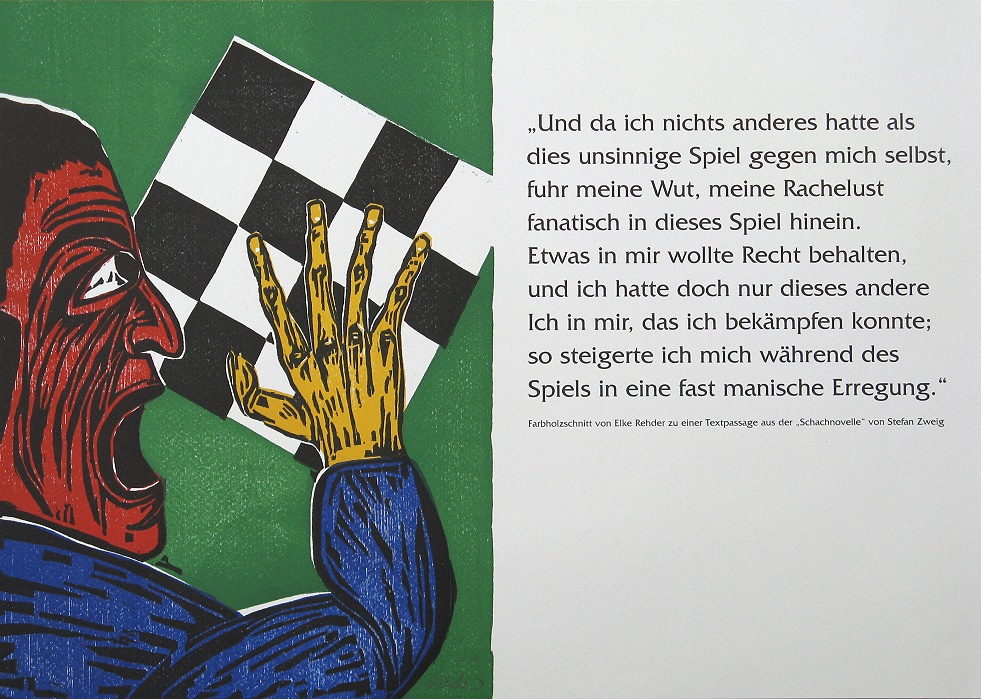

Photo: courtesy StudioCanal via Film Movement.Ĭhess Story begins in occupied Vienna, Austria, in 1938, where Dr. Josef Bartok (Oliver Masucci) and wife Anna (Birgit Minichmayr) enjoy a last evening of freedom before his arrest. In Chess Story, Zweig’s story serves as the basic outline of the film’s narrative, though here too, Stölz and co-writer Eldar Grigorian’s script is less interested in the details-say, the algebraic notations of the chess games its protagonist commits to memory to stave off insanity-than it is the deeper implications of fascist rule and psychological torture, something Zweig understood well. It’s been adapted before, with similar liberty, in the 1960 German film Brainwashed.

Similarly, Zweig’s The Royal Game, one of his best-selling and most famous works, might lend itself to any of a number of adaptive approaches.

Take, for instance, Letter from an Unknown Woman: director Max Ophüls, screenwriter Howard Koch, and star Joan Fontaine’s adaptation reworked Zweig’s feverish epistolary novella into a masterful melodrama by adding a clever new high-stakes frame narration, re-imagining the love interest’s occupation, using Ophüls’ gliding camera to approximate (and ultimately deconstruct) its narrator’s perspective, and even massage the strident Hays Code’s restrictions-all to the ultimate effect of creating one of Hollywood’s most revered melodramas. Interestingly, most filmmakers who took on Zweig never felt, it appears, any particular fealty to the details of his stories. Yet his stories lived on, and nary a decade went by without a new adaptation of his work leading to a beguiling film.

The Europe he had known and loved-its sophistication, its culture, its advances, its people-no longer existed. It was a shocking, vexing end to the life of a man who had once been among the world’s best-selling and most-translated authors. A new adaptation of Zweig’s The Royal Game, director Philipp Stölz’s Chess Story, puts the author’s trademark sophistication to excellent purpose in a period drama with contemporary relevance.Ī man both of his and out of time, Zweig left his native Austria after Hitler rose to power, relocating first in England, then New York, and finally to Brazil, where, in 1942, after years of exile, he died by suicide. And of course there is the cosmopolitan whimsy of The Grand Budapest Hotel (2014), the film that made Zweig an onscreen character (played by Jude Law) and a familiar name to contemporary audiences. Whether it’s the marital melodrama of Fear (1928, 1954), the lyrical obsessions of Letter from an Unknown Woman (1948), or the psychological torture of Brainwashed (1960), Zweig’s stories continue to attract screenwriters. There’s still something about the works of Stefan Zweig that continues to attract filmmakers to his stories and novellas, even after what is now nearly a full century of adaptation.


 0 kommentar(er)
0 kommentar(er)
